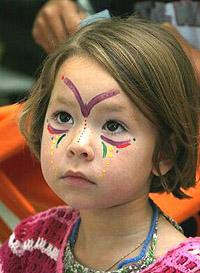Education Or Indoctrination?
“The fundamental challenge for humanity in the 21st century is to build a peaceful world in which environmental, social, cultural and economic sustainability are commonplace. To do this, we must change our economic bottom line to value full human development in healthy ecosystems; we must eliminate subsidies for unsustainable practices; and we must shift production and consumption patterns to reduce poverty, to support biological and cultural diversity, social justice and future generations.” Richard Clugston
“The crucial importance of education and communication, which must target the young generations in particular, was emphasized with a view to promoting not only participation, democratic values, mutual understanding and social cohesion within countries but also responsible global citizenship. In this regard, the UN Decade of Education for Sustainable Development is called upon to play a vital role.” Mr Koïchiro Matsuura, Director-General of UNESCO
“The 32nd General Conference of UNESCO recently adopted a resolution that recognizes the Earth Charter as an important ethical framework for SD and a valuable educational tool. UNESCO is planning to use the Earth Charter as an educational instrument during the DESD.” Richard Clugston
“The theme of my speech today is the values and the imperatives of the philosophy of survival...
The present day global landscape is one of profound crisis, which could end either in the death of humankind or in the breakthrough to a new civilization.” Mikhail Gorbachev, Founding Speech, Green Cross International, Kyoto
The Earth Scouts are a new movement for children and youth in the US based on the Earth Charter. [Barbara Goldstein]
“International Baccalaureate Organization (1200 schools around the world) endorsed the Earth Charter and is studying ways to integrate the Earth Charter into their curriculum.”
Duck & Cover
UNESCO
and the UN-ISDR want to mobilize schools worldwide, primary
and secondary pupils and teachers alike, to find a slogan
that will deliver the following message as forcefully as
possible: “Disaster reduction starts at school”.
This will be the slogan of the campaign on
education for the prevention of
natural disasters which UNESCO and ISDR are launching
this year for two years with activities in which primary and
secondary school teachers can participate.
2,000 people comment on a global agenda affecting the lifes of BILLIONS OF PEOPLE !!!
“A Framework for the Draft IIS was prepared, and over 2,000 responses to it were received from many stakeholders. The IIS will be presented to the General Assembly this fall (2004). UNESCO has also set the frame for national launches and regional strategies and developed a range of communications materials”..” Richard Clugston
DESD - Decade of Education for Sustainable Development
“The overall goal of the DESD is to integrate the principles, values, and practices of sustainable development into all aspects of education and learning. This educational effort will encourage changes in behaviour that will create a more sustainable future in terms of environmental integrity, economic viability, and a just society for present and future generations.
The primary goal for the DESD is laid out in the United Nations General Assembly resolution 59/237 in which the General Assembly “encourages Governments to consider the inclusion … of measures to implement the Decade in their respective education systems and strategies and, where appropriate, national development plans”. Furthermore, the General Assembly “invites Governments to promote public awareness of and wider participation in the Decade, inter alia, through cooperation with and initiatives engaging civil society and other relevant stakeholders, especially at the beginning of the Decade”.
“The UN Conference on Environment and Development in 1992, the Earth Summit, gave high priority in its Agenda 21 to the role of education in pursuing the kind of development that would respect and nurture the natural environment. It focused on the process of orienting and re-orienting education in order to foster values and attitudes of respect for the environment and envisaged ways and means of doing so. By the time of the Johannesburg Summit in 2002 the vision broadened to encompass social justice and the fight against poverty as key principles of development that is sustainable. The human and social aspects of sustainable development meant that solidarity, equity, partnership and cooperation were as crucial as scientific approaches to environmental protection. Besides re-affirming the educational objectives of the Millennium Development Goals and the Education for All Dakar Framework for Action, the Summit proposed the Decade of Education for Sustainable Development as a way of signaling that education and learning lie at the heart of approaches to sustainable development.” UNESCO
A
Social
Economic
A
Environmental
One Culture
One Standard
One Government
Redistribution of Wealth Engineered through trade agreements
Dissolution of National Sovereignty
Environment as a tool of socialization and terror - manipulation of the masses to make them accept global governance.
“Of late, tensions between man and nature have degenerated into an outright conflict between them. A real threat has emerged that the very foundations of human existence could be undermined, threatening life on earth. Technogenic progress based on perfecting the technology of civilization, far from having alleviated the conflict between man and nature, has in fact aggravated that conflict.” Mikhail Gorbachev, Founding Speech, Green Cross Intl 4/20/1993
